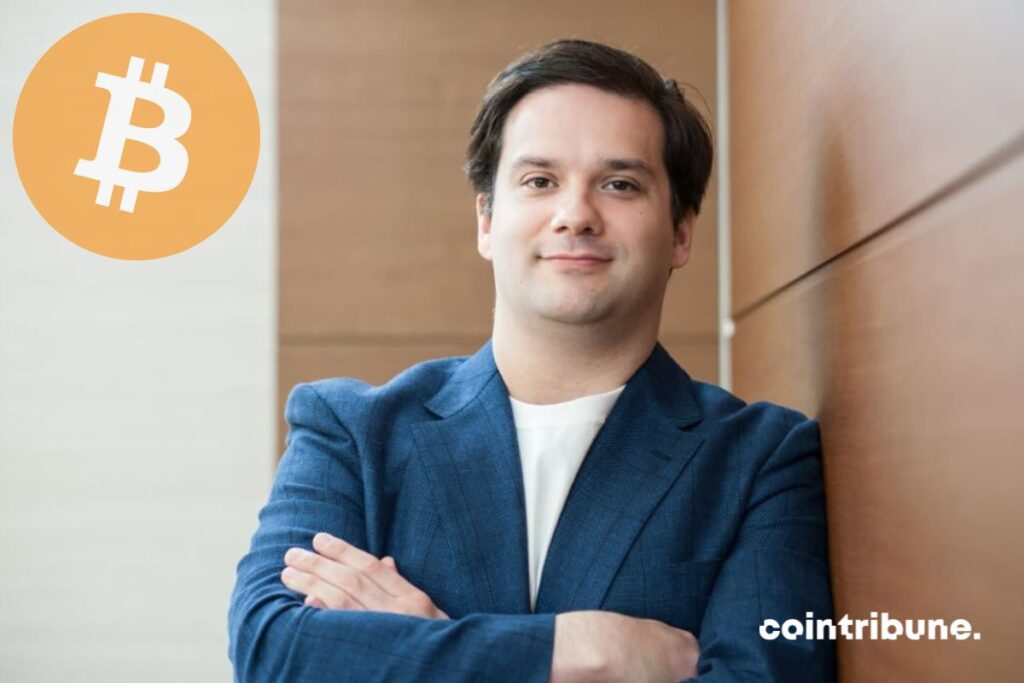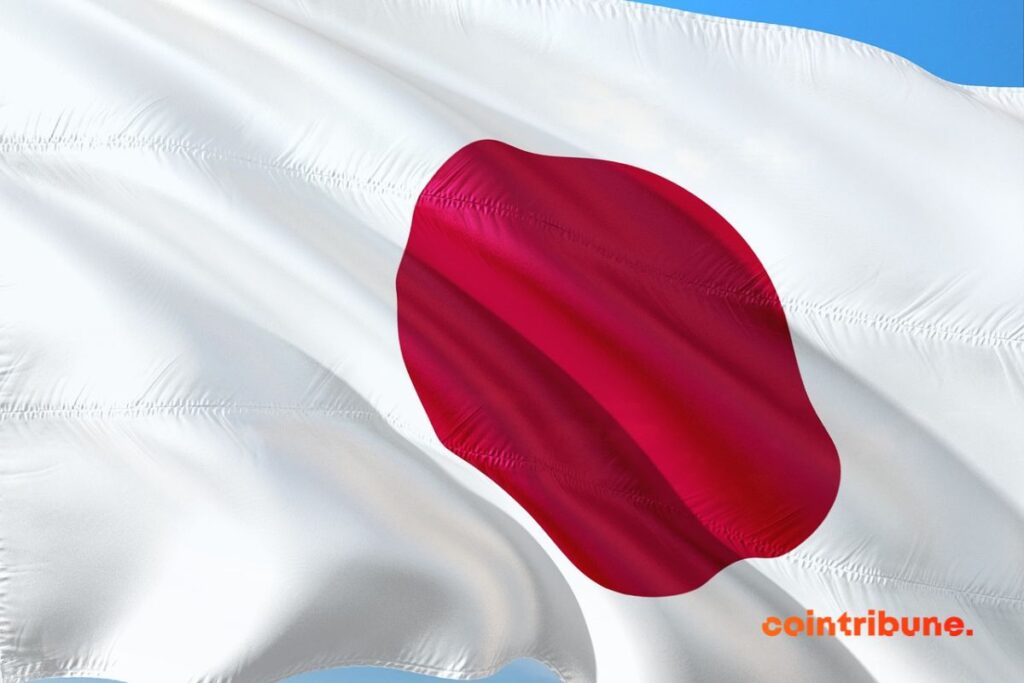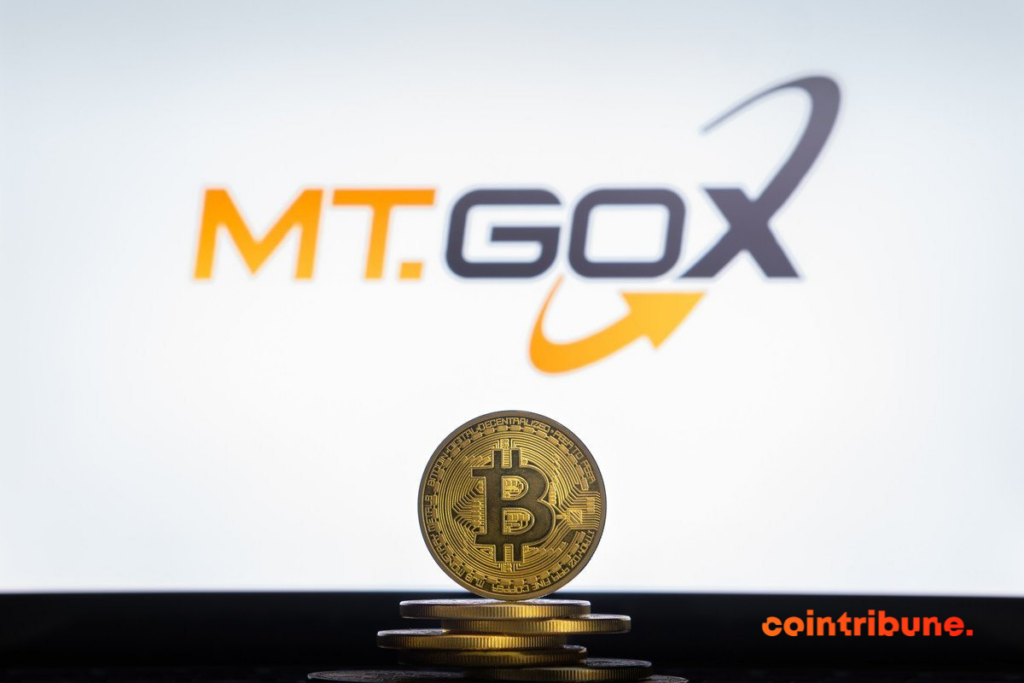Who Is Mark Karpelès?
He is one of those who have marked the history of bitcoin. Mark Karpelès was the CEO of the cryptocurrency exchange platform Mt. Gox, once a market leader, yet it went bankrupt under deplorable conditions. Beyond this notorious label, he also played an important role in the development of Satoshi Nakamoto‘s project. From “bitcoin baron” to pariah, let’s explore the atypical journey of this geek who made global headlines in 2014.

Education
Mark Karpelès was born on June 1, 1985, in Chenôve, France. Very early on, he developed a passion for computer programming. At the age of 3, he wrote his first program.
In reality, during his childhood, Mark dedicated much of his free time to creating mini-video games. He grew up in Dijon, where he spent part of his schooling.
Very curious by nature, he had the ability to learn with great ease in various fields, from computing to electronics, passing through quantum physics and cooking. His mother, who found him precocious, had him take an IQ test that placed him above average.
In 1992, the little boy moved to Paris to continue his studies at a school for gifted children.

Career
After graduating high school in 2003, Mark decided to stop studying and enter working life. He was hired as a developer by the video game creation companies Linux Cyberjoueurs and Eurocenter Games.
After only two years, the collaboration with Stéphane Portha, the owner of these two structures, went sour. Karpelès then decided to resign.
Later, Portha accused him of fraudulently accessing confidential data as part of one of his projects. The disgruntled former boss sued him for computer hacking. Already depressed, the 20-year-old Frenchman found himself unemployed and threatened by legal action.
In the meantime, he had launched a blog where he regularly shared advice on programming and computer security under the pseudonym MagicalTux. The difficulties he was experiencing led him to take refuge in this fictional character whose articles were greatly appreciated on the Internet.
After this first professional failure, Mark tried a new incursion into the working world with the e-commerce startup NexWay. This time, even though he was well paid, Karpelès felt the need to change course.
Move to Japan and discovery of bitcoin

At the age of 24, the manga fan moved to Tokyo, Japan, to live his childhood dream. It took him only a few months to learn to speak Japanese fluently.
In October 2009, Karpelès created his own company in collaboration with his new friend Julien Laglasse. Named Tibanne, in tribute to his cat, the company specializes in developing and hosting websites.
Everything went well until 2010 when the lawsuit initiated by his former employer began. Convinced of his innocence, Mark did not appear in court. However, he was sentenced to one year in prison and 45,000 euros in damages.
In 2010, one of his clients offered to pay for his services in bitcoins. Intrigued by this technology, the Frenchman accepted. Then, he quickly decided to generalize this new payment method to his entire company. Tibanne thus became one of the few companies, perhaps even the first, to accept payments in BTC.
The acquisition of Mt. Gox
Convinced by the potential of this virtual currency, Karpelès wanted to be part of this revolution. Therefore, when Jed McCaleb offered him to buy Mt. Gox, his startup specialized in buying and selling bitcoins, he could not resist the opportunity.
The problem was that at that time, Mark did not have enough funds to acquire the exchange platform. But Jed offered him a monthly deduction on his future profits to allow him to pay off his debt.
Moreover, the exchange had a deficit of 80,000 bitcoins due to hacking. But McCaleb reassured Mark, telling him that the site’s activity would allow him to quickly cover the cash shortfall.
In 2011, the gifted Dijon native acquired a majority stake (88%) in the capital of MtGox and became its CEO.
In a short time, he made it the main bitcoin exchange platform. At its peak, the structure handled 76% of global exchanges, with approximately 6 million dollars in transactions per day.
Meanwhile, the media coverage of bitcoin incited a real gold rush towards the digital currency. Thus, Mt. Gox, which concentrated the vast majority of BTC supply, became a prime target for cybercriminals.

The Bitcoin Foundation
Mark Karpelès is an engaged contributor to Satoshi Nakamoto‘s project. In 2012, he contributed to founding the Bitcoin Foundation. Initially, he even sat on the association’s board of directors. Furthermore, in its better days, he donated 5,000 bitcoins to the foundation to support its actions.
The fall of an empire
On February 7, 2014, Mark was thrust into the spotlight, but not for good reasons. The decline in BTC price, which began the previous year, prompted users to want to withdraw their assets from the platform.
Very quickly, they realized that the company had a solvency problem. Indeed, the numerous hacks the exchange had suffered over the years had led to the disappearance of 750,000 bitcoins.
Suddenly, the house of cards collapsed. Mt. Gox declared bankruptcy on February 25, dragging thousands of clients into its downfall. Suddenly, Karpelès became the man to bring down. For some, this insolvency was a consequence of his incompetence; for others, he was simply a crook.
For his part, he denied the embezzlement accusations against him. Yet, a little later, 200,000 BTC were found in one of the company’s hard wallets. Because he had concealed these funds, doubts about Karpelès’ honesty intensified.
At the same time, he had a series of legal troubles with the American justice system. On one hand, CoinLab, a competing company with which Mt. Gox had made a deal, sued the company for breach of contract. The reason was the exchange was supposed to transfer the management of its American clients to it but didn’t do so.
On the other hand, U.S. federal authorities accused Karpelès’ company of operating in the United States without authorization. Following this, they seized five million dollars owned by the exchange.
A stay in prison
The Japanese justice system ordered the arrest of the Frenchman on August 1, 2015, in Tokyo. In reality, the judicial authorities were prosecuting him for data falsification and embezzlement. After about four months of detention, Karpelès was finally placed in custody for a year.
In July 2016, he was released on bail. In 2019, Mark publicly apologized to the crypto community via Reddit. He also clarified certain obscure questions resurfaced by social network users.
Furthermore, his trial took place in March of the same year. Even though he pleaded not guilty, Japan sentenced him to 2.5 years imprisonment with suspended sentence and four years probation for data manipulation.
In conclusion
Very talented in software development, Mark Karpelès entered the professional world at a very young age. However, as much as this environment did not suit him, there was an ardent desire in him to venture into entrepreneurship. What he did, before realizing that intelligence does not necessarily rhyme with business sense. A poor business manager, his recklessness cost him his place at the head of the most important cryptocurrency exchange of his time, not to mention his legal troubles. Nonetheless, he should be recognized for his help in the development of Bitcoin, alongside Gavin Andresen and Hal Finney.
Maximize your Cointribune experience with our "Read to Earn" program! For every article you read, earn points and access exclusive rewards. Sign up now and start earning benefits.
The Cointribune editorial team unites its voices to address topics related to cryptocurrencies, investment, the metaverse, and NFTs, while striving to answer your questions as best as possible.
The views, thoughts, and opinions expressed in this article belong solely to the author, and should not be taken as investment advice. Do your own research before taking any investment decisions.